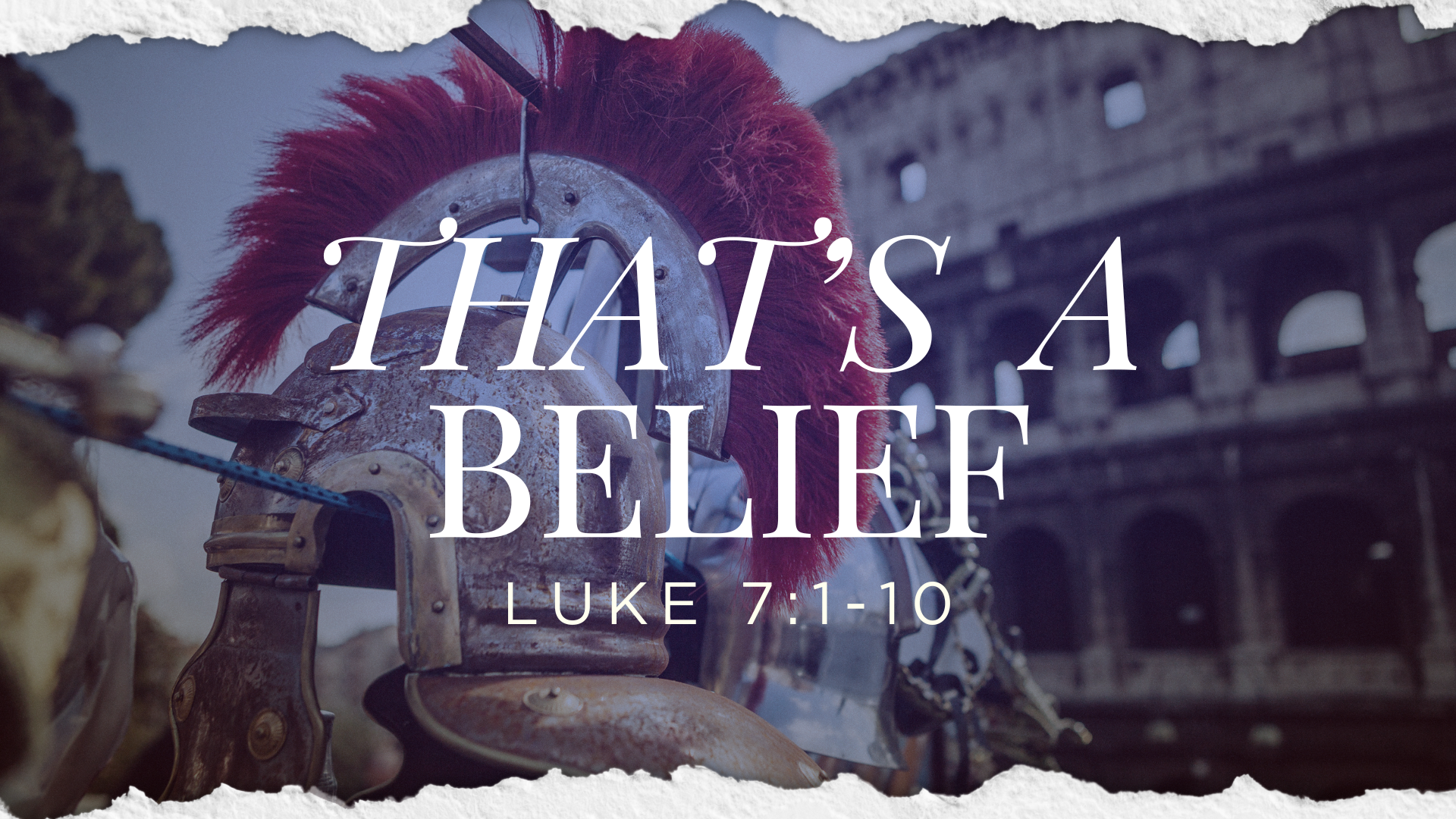
Treasure Rove (Luke 24:13-35)
Last year, a woman in the Czech Republic went for a stroll outside her little town of 22,000 people. That day she stumbled upon a ceramic pot. Inside were more than 2,000 silver coins that had been hidden in that spot for 900 years. It’s been dubbed one of the greatest finds of the last decade.[1]
We like this idea of treasures hidden in plain sight. The painting someone gets at a garage sale that’s really a secret Rembrandt. The doorstop that’s actually a chunk of meteor.
But there is a greater treasure than silver or gold. In an age where we are inundated with lies and scams and propaganda, it’s truth that becomes most valuable. I don’t mean simple facts of what the temperature is outside or the number of words in a dictionary – but truth that changes lives. That kind of truth – eternal truth – is what sets us free, brings us hope, gives life direction worth going.
The good news is this truth is within reach of all of us. 88% of American households contain at least one Bible.[2] It is freely available from any computer, tablet, or smartphone. With this book, God has delivered life changing Good News. The greatest treasure in all the world.
It is better than thousands of gold or silver pieces.[3] It is more precious than rubies.[4] It has been sent to you, so that through it you can enjoy the riches of everlasting life through a relationship with Jesus Christ, the Son of God, Who died for you, defeated death, and rose from the grave.
On the very first Easter Sunday, two people on a walk stumbled upon a life-changing treasure that not only gave them hope when they were full of fear, not only gave them perspective on the past and present, but gave them a whole new future. And we will find this treasure rove wasn’t just for them, it wasn’t just for a few people in the first century. This treasure is for every one of us.
Luke 24:13 – 13 Now that same day two of them were on their way to a village called Emmaus, which was about seven miles from Jerusalem.
This story begins on Easter Sunday. Jesus had been crucified on Friday and buried in a tomb, but the most provable fact of ancient history is that Sunday morning He rose from the dead, proving He really is the Son of God, He really is the Messiah, He really is the Way, the Truth, and the Life.[5]
These two people were followers of Jesus. They had been with Jesus, they had listened to Him, they had pledged their lives to Him. They had heard what He said and watched what He did. But after seeing Him die on a Roman cross, they didn’t know what to think.
They were headed toward Emmaus. That was not the right destination. Before He died, Jesus told His disciples, “I’m going to die, and I’m going to rise three days later. After that meet Me in Galilee.” That message was repeated to the disciples by angels at the empty tomb that very morning. We know these two travelers knew all that, but here they are, heading in the wrong direction.
They were discouraged. They were fearful. They were doubting. They didn’t know what to do, so they returned to what they knew before. But there were no answers waiting for them in Emmaus.
Luke 24:14 – 14 Together they were discussing everything that had taken place.
It was more disputing than discussing. It wasn’t just that their candidate had lost an election or their team had lost a championship. They had devoted their lives to Jesus, Who had done things no one had ever done, Who preached with power and worked miracles and claimed to be God. But then He had been arrested and tortured and killed. As He died, crazy things happened. In the middle of the day, for three hours, darkness fell over the whole land. There was a great earthquake that had split rocks around them. This was not a normal Friday.
When California has an earthquake and we get even a tiny wobble here, we start texting everyone we know. “Did you feel it?!?” Now imagine an earthquake broke your house in half while it was suddenly pitch black from noon till 3 o’clock. That’s a lot to process.
Luke 24:15 – 15 And while they were discussing and arguing, Jesus himself came near and began to walk along with them.
Jesus came and found them. Jesus always comes looking. You don’t have to climb to the top of the Himalayas to be able to see Him. Batman. Dr. Strange. Remember: These disciples essentially gave up. They weren’t going where Jesus had asked them to go. So He came for them. Not to prove them wrong, but to heal their broken hearts. To show them the treasures they had missed.
Jesus is so kind and so patient. There was a fixed time between His resurrection and His ascension into heaven. He was on the clock! But He made time for these two, and for Mary, and for Peter, and for Thomas the Twin, and for another 500, and for so many more. Jesus makes the time, He makes the effort to reach out to you, too – to find you where you are and speak the truth of His love for you in hopes that you will believe Him and walk with Him and receive what He wants to give you.
Luke 24:16 – 16 But they were prevented from recognizing him.
Why? What’s the point? If we were making the call, wouldn’t we just show up in a blaze of fire and say, “Hey, dummies, I’m back. Go to Galilee like I said?” Why was Jesus hidden from them?
God wants faith. Without faith it is impossible for you to please God.[6] What He wants is people who will willingly choose to conform their hearts and minds to His revelation. To willfully choose to answer His call and accept His love and love Him in return. He asks us to live by faith.
In this case, He wanted to show these two disciples that the truth of the Gospel had been right there before them all along. That the only failure here was their understanding, not God’s plan.
Luke 24:17 – 17 Then he asked them, “What is this dispute that you’re having with each other as you are walking?” And they stopped walking and looked discouraged.
Jesus used an interesting word for dispute. It refers to something being thrown back and forth.[7] In this moment, there was no fixed basis for their thoughts or choices. No anchor or foundation.
No matter where their feet took them, without truth they wouldn’t make any progress in life. Their crisis is depicted here: They stood still, looking sad.[8] They were lost and needed direction.
Luke 24:18 – 18 The one named Cleopas answered him, “Are you the only visitor in Jerusalem who doesn’t know the things that happened there in these days?”
There are some ancient church writings which say that Cleopas was, in fact, Joseph’s brother. Meaning he may have been Jesus’ uncle.[9] We can’t be sure, but if so, what a great reminder that no matter who you are, we all come to Jesus the same way: By grace, through faith. Not who you know, not by what you’ve earned, not who your dad is, through your faith.
Luke 24:19-21 – 19 “What things?” he asked them. So they said to him, “The things concerning Jesus of Nazareth, who was a prophet powerful in action and speech before God and all the people, 20 and how our chief priests and leaders handed him over to be sentenced to death, and they crucified him. 21 But we were hoping that he was the one who was about to redeem Israel. Besides all this, it’s the third day since these things happened.
It’s still a little surprising to us that the disciples weren’t all waiting for the tomb to open Sunday morning. He had been so specific in telling them what was going to happen. I don’t think we would’ve done any better. It wasn’t that Jesus failed to tell them, it was that they failed to listen.
Their first problem is when he says, “Jesus was a prophet.” Ah, so right away we see that he had only a partial understanding of Who Jesus really is. Not just a holy man, not just a teacher. He’s the Son of God. The Lamb of God. He’s the Son of David. The Christ. He is the Alpha and the Omega.
What about in your mind? Who is Jesus? Is He just a figure on a crucifix? Is He just a really nice Guy Who told people they should be nice, too? We can know exactly Who Jesus is by going to the Scriptures. He has come in the volume of the Book. In this Book we find He’s not just a prophet. Jesus is the King of kings. He is your Maker. He is your Master. He is your Savior. He is the only One Who can rescue you from the guilt of your sin and your place in the grave.
The second problemis that they had heard but not fully obeyed Jesus. Cleopas says it was “the third day” since everything happened. Do you know how many times Jesus told His disciples He was going to die and then He’d rise the third day? Mark 9 He says, “I’m going to be betrayed, then I’m going to be killed, then three days later I’m going to rise again.” In Luke 18, He says, “I’m going to be handed over to the Gentiles and mocked and spit on and flogged, then killed, then on the third day I’m going to rise again.” Over and over. Earlier in Luke He said to His discples: Let these words sink in![10] And here we are – on the third day – and they’ve packed up for Emmaus!
Did you know Jesus has told us something similar? He explained that He is going to return one day. Where will you be? Will you be on some Emmaus road? Headedthe wrong way? Or will you be ready for His coming? Ready by believing and trusting and obeying the things He’s told us to do?
Luke 24:22-24 – 22 Moreover, some women from our group astounded us. They arrived early at the tomb, 23 and when they didn’t find his body, they came and reported that they had seen a vision of angels who said he was alive. 24 Some of those who were with us went to the tomb and found it just as the women had said, but they didn’t see him.”
Luke tells us that when the ladies came telling what they had seen, the disciples thought it sounded like nonsense – idle tales. They were astounded but not convinced.
If you’re not a Christian here today, what would it take for you to believe that Jesus really is God? That He really died and rose again and offers you salvation?
“Well, why doesn’t He a message in the sky?” The universe declares His glory. There is no symphony that wrote itself. No painting that painted itself. No DNA that ever coded itself. This meticulously designed universe must have a Designer. If that’s not enough, He’s also given you 66 books in your language, available for free, so that you can know all about Him, all about His plan, all about how He does things, all about how He loves you.
“Well, I need eyewitnesses evidence.” History is full of the life testimonies of multiplied millions of Christians who, in many cases, spilled their own blood as witnesses for Jesus. In this room are many who can testify of His grace, His goodness, His power, His love, His saving work, His faithfulness.
“I want to see a miracle.” The enemies of Christ saw hundreds of miracles. It was a matter of the heart. They wouldn’t believe, even when they saw signs and wonders. Will you believe? Will you acknowledge what is true or will you cling to your own hopeless, foundation-less ideas of what you think is right and best? Jesus once said, “Blessed are those who have not seen and yet believe.”[11]
Luke 24:25-27 – 25 He said to them, “How foolish you are, and how slow to believe all that the prophets have spoken! 26 Wasn’t it necessary for the Messiah to suffer these things and enter into his glory?” 27 Then beginning with Moses and all the Prophets, he interpreted for them the things concerning himself in all the Scriptures.
Jesus was gentle, but direct. He wasn’t going to leave them in their hopelessness. But notice: Jesus does not do a miracle for them. He doesn’t change anything about their physical circumstances that day. What He does is start to uncover the treasures of truth from the Word of God that had been there all along. He revealed to them what was already true, but they hadn’t laid hold of.
You see, they believed some of what they had heard, but they were having a hard time believing all God had said. Jesus says to them, “Wasn’t this all necessary? It’s right there on the page.”
Perhaps you’re here and you are willing to go as far as saying, “I believe there is a God.” That’s a start, but listen: Even the demons believe and they shudder.[12] God is there and He has spoken at length about Who He is, how you need to be saved, and how there’s only One way you can be.
Do you want to know these truths? Do you want to lay your hands on this treasure that leads to life everlasting and more abundant? It is found in the Gospel of Jesus Christ, in the Word of God which is all you need for life and Godliness. That’s why we study the Bible here at Calvary. Book by book, because we want to understand the whole of what God has said. When we only pocket parts of the message, it will inevitably lead to shipwreck of some kind. But God doesn’t want to wreck your life, He wants to revolutionize it and grow it and fill it with His many gifts.
Luke 24:28-29 – 28 They came near the village where they were going, and he gave the impression that he was going farther. 29 But they urged him, “Stay with us, because it’s almost evening, and now the day is almost over.” So he went in to stay with them.
Jesus is a little playful here, a little coy. He’s the One Who came to find them – He went out of His way to do so. Of course He wanted to stay with them, at least for a little while longer.
The God of the universe wants to spend His “time” with you. The image we’re given in the Bible is of Jesus standing at the door of your life, the door of your heart, and He’s knocking, knocking, knocking – hoping you will open that door and invite Him in.
It was the end of the day but it wasn’t too late to invite Jesus in. It’s not too late for you, either. It doesn’t matter what you’ve done, how old you are, how many mistakes you’ve made. You can invite Him in today. You can call out in faith from your heart, telling the Lord that you believe and that you want to receive the salvation He wants to give.
Luke 24:30-31 – 30 It was as he reclined at the table with them that he took the bread, blessed and broke it, and gave it to them. 31 Then their eyes were opened, and they recognized him, but he disappeared from their sight.
Of course, He wasn’t really gone. He would shortly appear to them again and that would be followed by a promise that He will never leave or forsake us. Even though He was not visible, He still was with them. Still watching over them. Still walking with them, covering them in His love and grace and affection. God’s great desire is to give you the Bread of life. To give you joy. To give you clarity and peace. To give you direction and purpose. To give you a spiritual family. To give you gifts every day as you walk with Him.
Luke 24:32 – 32 They said to each other, “Weren’t our hearts burning within us while he was talking with us on the road and explaining the Scriptures to us?”
Suddenly, everything changed – at least everything in their hearts and their minds and their future. Their travel packs still had the same stuff. Their bank accounts hadn’t changed. Israel was still occupied by Rome. But where there was fear, now there was hope. Where there was confusion, now there was purpose. Where there was discouragement, now there was zeal. And they had to share this treasure with their friends.
Luke 24:33-35 – 33 That very hour they got up and returned to Jerusalem. They found the Eleven and those with them gathered together, 34 who said, “The Lord has truly been raised and has appeared to Simon!” 35 Then they began to describe what had happened on the road and how he was made known to them in the breaking of the bread.
I don’t think I’ve ever walked 14 miles in a single day. I certainly haven’t walked 7 miles in the dark of night. But their hearts were on fire. Their path was lit up with the light of God’s Word. Their friends have also had visits with Jesus. Because the “Stranger” that had walked with these two to Emmaus doesn’t want to stay a Stranger. He wants to make Himself known.
Archaeologists say that the coins found in the Czech Republic last year would’ve been an unimaginably huge amount for a person 900 years ago. God has offered you an unimaginably precious treasure. The forgiveness of your sins. Life everlasting. An eternal home in heaven. A spiritual family on earth. A meaningful purpose for your life. All yours because of what Jesus has done. Because He died on a cross and rose three days later. Now He offers this everlasting treasure freely to those who will receive it.
Romans 10:9 – 9 If you confess with your mouth, “Jesus is Lord,” and believe in your heart that God raised him from the dead, you will be saved.
You’re here this morning. You’ve come across the jar of coins. Will you receive it? And for those of us who have received it, let’s remember what it means to have this gift. Let’s be on our way to Galilee, not Emmaus. Let’s keep digging into God’s Word to find even more treasure day by day.
| ↑1 | https://www.popularmechanics.com/science/archaeology/a64431012/medieval-denarii-coins-discovered/ |
|---|---|
| ↑2 | https://www.barna.com/research/americans-perceptions-of-the-bibles-global-reach/ |
| ↑3 | Psalm 119:72 |
| ↑4 | Proverbs 3:13-15 |
| ↑5 | See Lee Strobel The Case For Christ, Scott Powell Jesus Christ’s Resurrection: The Best Documented Event Of Ancient History, Josh McDowell Evidence That Demands A Verdict |
| ↑6 | Hebrews 11:6 |
| ↑7 | Frank Gaebelein, D. A. Carson, Walter Wessel, and Walter Liefeld The Expositor’s Bible Commentary, Volume 8: Matthew, Mark, Luke |
| ↑8 | Marvin Vincent Word Studies In The New Testament |
| ↑9 | Norval Geldenhuys Commentary On The Gospel Of Luke |
| ↑10 | Luke 9:44 |
| ↑11 | John 20:29 |
| ↑12 | James 2:19 |








